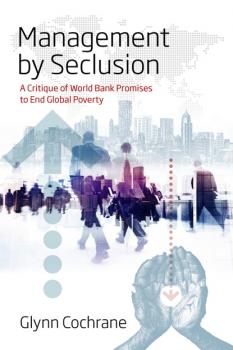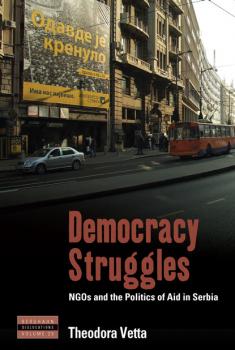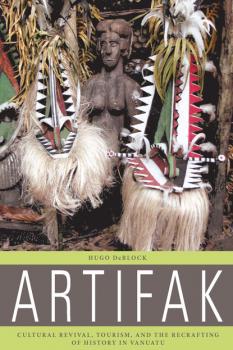ТОП просматриваемых книг сайта:
Культурология
Различные книги в жанре Культурология, доступные для чтения и скачиванияАннотация
50 years ago, World Bank President Robert McNamara promised to end poverty. Alleviation was to rely on economic growth, resulting in higher incomes stimulated by Bank loans processed by deskbound Washington staff, trickling down to the poorest. Instead, child poverty and homelessness are on the increase everywhere. In this book, anthropologist and former World Bank Advisor Glynn Cochrane argues that instead of Washington’s “management by seclusion,” poverty alleviation requires personal engagement with the poorest by helpers with hands-on local and cultural skills. Here, the author argues, the insights provided by anthropological fieldwork have a crucial role to play.
Аннотация
Petra, Jordan became a UNESCO World Heritage site in 1985, and the semi-nomadic Bedouin inhabiting the area were resettled as a consequence. The Bedouin themselves paradoxically became UNESCO Masterpieces of Oral and Intangible Heritage in 2005 for the way in which their oral traditions and everyday lives relate to the landscape they no longer live in. Being Bedouin Around Petra asks: How could this happen? And what does it mean to be Bedouin when tourism, heritage protection, national discourse, an Islamic Revival and even New Age spiritualism lay competing claims to the past in the present?
Аннотация
An anthropological study of the health system of the Dagara people of northern Ghana and southern Burkina Faso, Of Life and Health develops a cultural and epistemological lexicon of Dagara life by examining its religious, ritual, and artistic expressions. Consisting of ethnographic descriptions and analyses of six Dagara cultic institutions, each of which deals with different aspects of sustaining and transmitting life, the volume gives a holistic account of the Dagara knowledge system.
Аннотация
From Christian missionary publications to the media strategies employed by today’s NGOs, this interdisciplinary collection explores the entangled histories of humanitarianism and media. It traces the emergence of humanitarian imagery in the West and investigates how the meanings of suffering and aid have been constructed in a period of evolving mass communication, demonstrating the extent to which many seemingly new phenomena in fact have long historical legacies. Ultimately, the critical histories collected here help to challenge existing asymmetries and help those who advocate a new cosmopolitan consciousness recognizing the dignity and rights of others.
Аннотация
Drawing on fieldwork from diverse Amerindian societies whose lives and worlds are undergoing processes of transformation, adaptation, and deterioration, this volume offers new insights into the indigenous constitutions of humanity, personhood, and environment characteristic of the South American highlands and lowlands. The resulting ethnographies – depicting non-human entities emerging in ritual, oral tradition, cosmology, shamanism and music – explore the conditions and effects of unequally ranked life forms, increased extraction of resources, continuous migration to urban centers, and the (usually) forced incorporation of current expressions of modernity into indigenous societies.
Аннотация
Tracing the boom of local NGOs since the 1990s in the context of the global political economy of aid, current trends of neoliberal state restructuring, and shifting post-Cold War hegemonies, this book explores the “associational revolution” in post-socialist, post-conflict Serbia. Looking into the country’s “transition” through a global and relational analytical prism, the ethnography unpacks the various forms of dispossession and inequality entailed in the democracy-promotion project.
Аннотация
Corporate scandals since the 1990s have made it clear that economic wrongdoing is more common in Western societies than might be expected. This volume examines the relationship between such wrong-doing and the neoliberal orientations, policies, and practices that have been influential since around 1980, considering whether neoliberalism has affected the likelihood that people and firms will act in ways that many people would consider wrong. It furthermore asks whether ideas of economic right and wrong have become so fragmented and localized that collective judgement has become almost impossible.
Аннотация
Globalization promised to bring about a golden age of liberal individualism, breaking down hierarchies of kinship, caste, and gender around the world and freeing people to express their true, authentic agency. But in some places globalization has spurred the emergence of new forms of hierarchy—or the reemergence of old forms—as people try to reconstitute an imagined past of stable moral order. This is evident from the Islamic revival in the Middle East to visions of the 1950s family among conservatives in the United States. Why does this happen and how do we make sense of this phenomenon? Why do some communities see hierarchy as desireable? In this book, leading anthropologists draw on insightful ethnographic case studies from around the world to address these trends. Together, they develop a theory of hierarchy that treats it both as a relational form and a framework for organizing ideas about the social good.
Аннотация
In Vanuatu, commoditization and revitalization of culture and the arts do not necessarily work against each other; both revolve around value formation and the authentication of things. This book investigates the meaning and value of (art) objects as commodities in differing states of transit and transition: in the local place, on the market, in the museum. It provides an ethnographic account of commoditization in a context of revitalization of culture and the arts in Vanuatu, and the issues this generates, such as authentication of actions and things, indigenized copyright, and kastom disputes over ownership and the nature of kastom itself.
Аннотация
What happens to people, places and objects that do not fit the ordering regimes and progressive narratives of modernity? Conventional understandings imply that progress leaves such things behind, and excludes them as though they were valueless waste. This volume uses the concept of indeterminacy to explore how conditions of exclusion and abandonment may give rise to new values, as well as to states of despair and alienation. Drawing upon ethnographic research about a wide variety of contexts, the chapters here explore how indeterminacy is created and experienced in relationship to projects of classification and progress.










